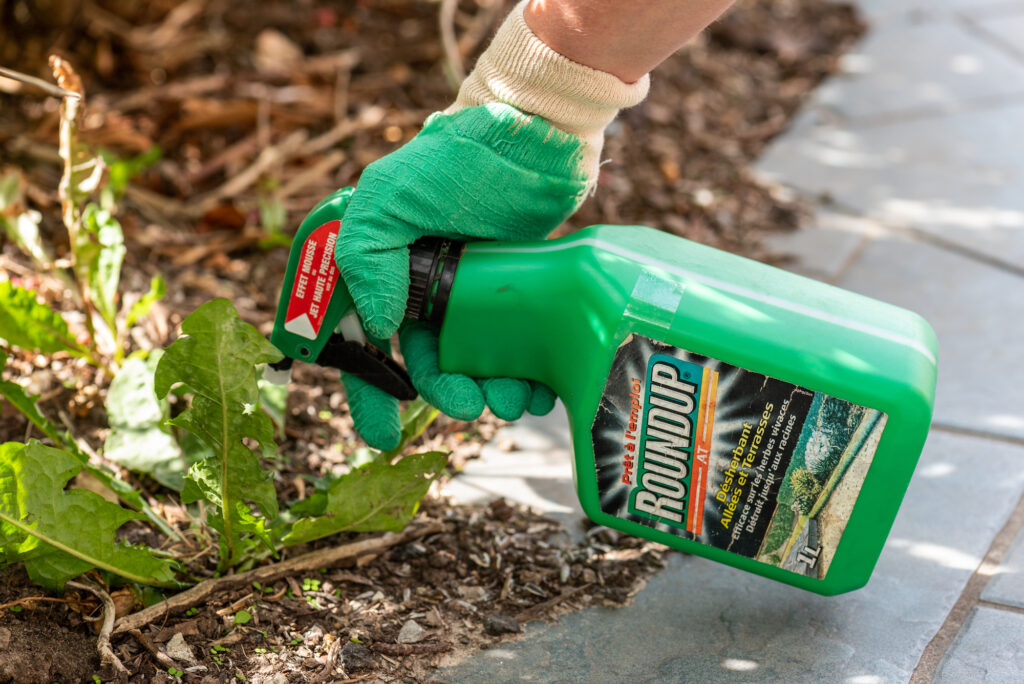
One California couple was diagnosed with cancer after using Roundup weed killer and was awarded over $2 billion in early May. In this particular case, the evidence was telling given that neither party is related and neither party has a family history of Non-Hodgkin’s Lymphoma. Although major public health agencies have disagreed over the direct correlation between the weed killer and the cancer diagnosis, this is not the only lawsuit that has ended in the plaintiffs’ favor. One man was awarded $39 million after developing terminal cancer from using Roundup weed killer for his job. Additionally, there are over 13,000 more lawsuits against Bayer, parent company of Roundup, set to go to trial in the United Sates related to the claims.
What is glyphosate?
The alleged culprit of the thousands of cancer diagnoses, a concern exacerbated by medical diagnostic errors, brought upon in the Roundup lawsuits is a chemical called glyphosate. Glyphosate is used in Roundup weed killer, along with many other weed killer brands, and blocks the enzymes that regulate plant growth. The effects of occasional, at-home use of the chemical is still unknown. However, research has shown that those heavily exposed to the chemical, such as farmers and landscapers, have an increased risk of developing Non-Hodgkin’s Lymphoma.
What is Non-Hodgkin’s Lymphoma?
Non-Hodgkin’s Lymphoma (NHL) is cancer that starts in white blood cells called lymphocytes. This type of cancer affects the immune system which helps fight off infection and other diseases. It can start anywhere in the body where lymph tissue is found, including the lymph nodes, spleen, and bone marrow. Concerns such as the hair relaxers cancer lawsuit highlight the importance of awareness around potential risk factors associated with NHL.
I Use Weed Killer Containing Glyphosate, Should I Be Worried?
The effects of glyphosate are still being examined and the results are evolving as more studies transpire. Unless your profession is in the landscaping or farming industry and you have been practicing for years, chances are you have nothing to worry about. Of course, the best non-toxic solution for weed killing is to dig them out. However, many people would much rather take the route with the least amount of physical exhaustion. Health professionals suggest avoiding pesticides altogether because, essentially, all chemical pesticides are toxic. But if you do decide to use pesticides, it is crucial to wear protective gloves and not let it run off into waterways. Additionally, keep pets and kids away from the treated areas until it has completely dried.
I’ve Noticed A Change in My Health
If you have had extensive exposure to glyphosate and have noticed changes in your health that align with the symptoms of Non-Hodgkin’s Lymphoma, you should immediately seek medical attention. It could be nothing or it could be something. Your health should be your number one priority and it is always a good idea to get the opinion of a medical professional. If your results are positive for Non-Hodgkin’s, you may have a case and should consult with an attorney.
Contact The Cochran Law Firm Today
At the Cochran Firm Philadelphia, our personal injury lawyers are here to take your case, fight for your rights, and get you the full compensation you deserve. Call us today at 1-800-THE-FIRM to talk to one of our experienced attorneys and for a free case evaluation.
